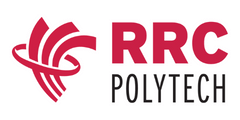 Clean Tech
Clean Tech Construction
Construction Hybrid
Hybrid Winter Term
Winter Term $500 - $1000
$500 - $1000 English
English
This microcredential will teach students about the building envelope, its components, and the building science concepts that determine how a building interacts with its environment and surroundings. This microcredential is designed for anyone with an interest in building science. Whether a season building professional or a savvy homeowner, a knowledge of building science helps make design and material decisions that increase building efficiency and longevity.
The learner will:
With energy used for home heating and cooling comprising approximately 11% of Canada’s national energy usage, along with the ever-increasing cost of energy, building more efficient and resilient structures should be of paramount importance to Canadian homebuilders and owners. This micro-credential will educate on energy-efficient building materials and practices that can reduce the energy used to heat and cool, as well as reduce wasted energy and materials used in repairing or rebuilding poorly built structures.
 Winter Term
Winter TermTell us about your experience with our training. Complete this 2-4 minute survey.